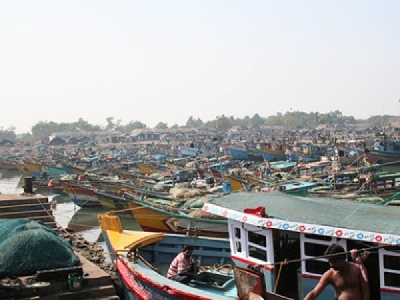
Posted on October 25, 2016
Dredging of river basin in Paradip Fishing Harbour will begin within a fortnight. The Fisheries Department has decided to spend `6.65 crore for the work that has become necessary for safe berthing of fishing vessels.
The harbour, established in 1998, was under dual administration of Paradip Port Trust and Odisha Government till 2011 when the latter took control over the hub. It is Odisha’s largest fishing harbour that caters to thousands of traditional marine fishermen. Everyday, about 700 deep-sea trawlers besides over 2000 medium capacity fishing vessels begin their seaward venture from this busy harbour.
Over the years, siltation and erosion have led to reduction of basin depth which is resulting in frequent boat capsize. Massive silt deposit is also obstructing release of Mahanadi’s floodwater into sea thereby exposing river bank settlements to the threat of flood.
Dredging operation was last carried out in 2000.
The basin depth should be at least five metre for hassle-free movement of fishing vessels and boats. However, the depth has now been reduced to two metres due to heavy deposit of sand. Members of the Odisha Marine Fish Producers Association (OMFPA) had earlier urged the Fisheries Department to look into the issue.
Similarly, the department has sought suggestions of Indian Institute of Technology-Kharagpur on dredging the Mahanadi river mouth in Paradip to bring down siltation.
The depth of the harbour is dipping day be day. Massive silt deposit on the Mahanadi river mouth poses threat to the trawlers and vessels. The 500 metre long river water channel, which the vessels sail through before making their way into the sea, has undergone severe siltation.
At present, depth of water is as less as three metres in the lagoon. Odisha Marine Fish Producers’ Association (OMFPA) has expressed serious concern over frequency at which boats are meeting accidents near Mahanadi river mouth. At least five fishermen have gone missing in the last two years after their boats capsized at the river mouth.
Source: The New Indian Express





